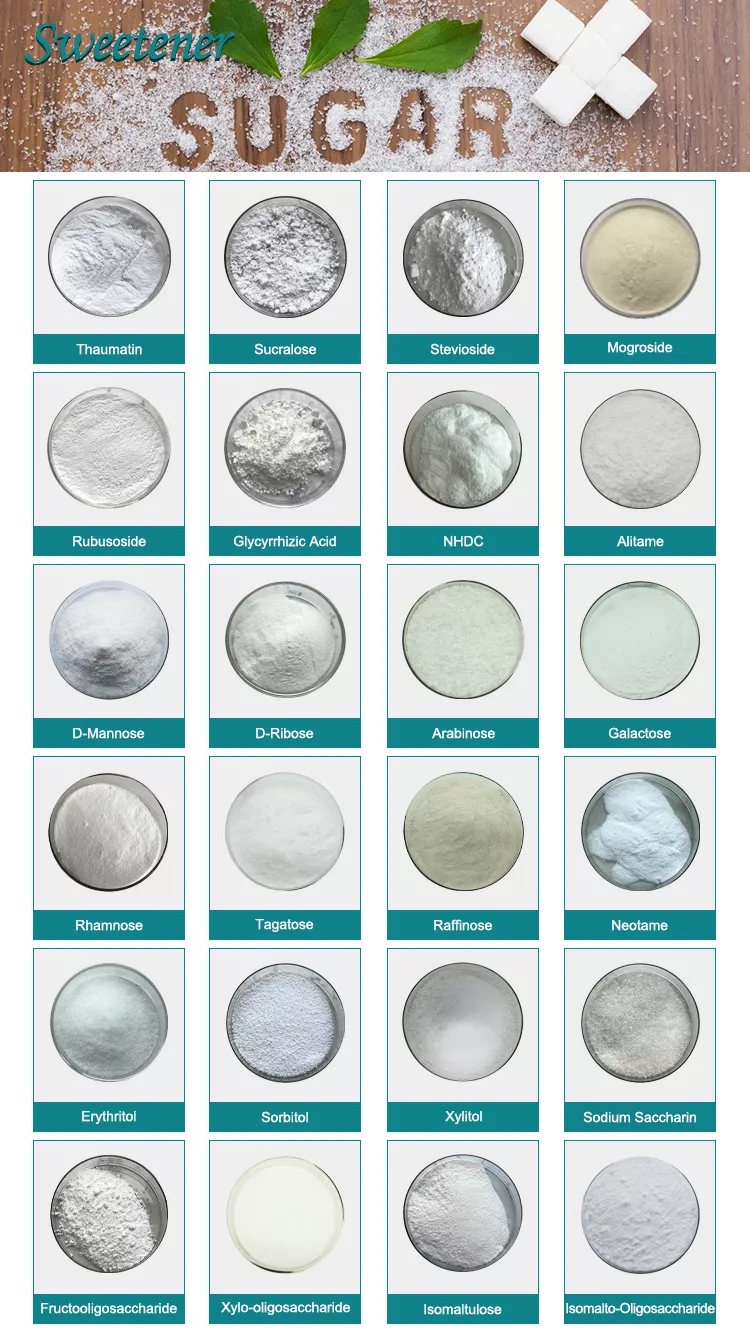Neotame is a high-intensity artificial sweetener that is chemically related to aspartame. Like other artificial sweeteners, neotame has its own set of pros and cons. It’s important to note that individual reactions to sweeteners can vary, and some people may experience different effects. Here are some general pros and cons of neotame:
Pros of Neotame:
High Sweetness Intensity: Neotame is approximately 7,000 to 13,000 times sweeter than sucrose (table sugar), which means that very small amounts can be used to achieve the desired level of sweetness. This can be beneficial for reducing calorie intake in foods and beverages.
Low Calorie Content: Since neotame is so much sweeter than sugar, it can be used in minimal amounts to achieve the same level of sweetness, resulting in very few calories added to the diet. This can be advantageous for individuals looking to manage their weight or reduce calorie intake.
Stable at High Temperatures: Neotame is heat-stable, making it suitable for use in cooking and baking. It does not break down at high temperatures, which makes it a versatile sweetener for various food applications.
No Aftertaste: Neotame is reported to have a clean, sweet taste without the bitter or metallic aftertaste that some people associate with other artificial sweeteners like saccharin or aspartame.

Cons of Neotame:
Not Heat-Resistant in All Applications: While neotame is generally heat-stable, it may not be suitable for all cooking and baking applications. In some cases, its sweetness may diminish with prolonged exposure to high temperatures.
Limited Research on Long-Term Effects: Although neotame has undergone extensive safety testing, there is limited research on its long-term effects in humans. Some people may be concerned about potential health risks associated with prolonged and high-level consumption.
Phenylalanine Content: Neotame contains phenylalanine, an amino acid. People with phenylketonuria (PKU), a rare genetic disorder, need to monitor their intake of phenylalanine, as their bodies cannot metabolize it properly. Neotame, like aspartame, should be avoided by individuals with PKU.
Taste Preferences: Some individuals may not prefer the taste of neotame or may have a sensitivity to it. Taste preferences can vary, and some people may find the aftertaste or sweetness level to be less appealing.
It’s essential to consider individual health conditions, dietary preferences, and tolerance levels when deciding whether to include neotame or any artificial sweetener in your diet. Always consult with a healthcare professional if you have specific health concerns or conditions.
The potential benefits of Neotame
Neotame is an artificial sweetener that is chemically similar to aspartame but is potentially more potent. It was approved by the U.S. Food and Drug Administration (FDA) in 2002 as a general-purpose sweetener and flavor enhancer. Here are some potential benefits associated with Neotame:
Sweetening Power: Neotame is around 7,000 to 13,000 times sweeter than sucrose (table sugar), which means that very small amounts are needed to achieve the desired level of sweetness. This can be beneficial for people looking to reduce their calorie and sugar intake.
Calorie Reduction: Due to its intense sweetness, Neotame can be used in very small quantities to sweeten foods and beverages without significantly contributing to the overall caloric content. This makes it a suitable option for individuals aiming to control or reduce their calorie intake.
Stability: Neotame is heat-stable, meaning it retains its sweetness even when exposed to high temperatures during cooking or baking. This stability makes it suitable for a wide range of food and beverage applications.
Diabetes Management: Since Neotame is not metabolized by the body, it does not affect blood sugar levels, making it a potential option for people with diabetes who need to control their glucose intake.
Tooth-friendly: Neotame does not contribute to tooth decay, as it does not provide a substrate for bacteria in the mouth to produce acids that can harm tooth enamel. This makes it a tooth-friendly sweetening option.

Flavor Enhancement: Neotame is known to enhance and intensify flavors, which can be beneficial in the formulation of low-calorie or reduced-sugar food products. It allows manufacturers to maintain the desired taste profile while reducing the overall sugar content.
No Aftertaste: Unlike some other artificial sweeteners, Neotame is reported to have minimal to no aftertaste, providing a more pleasant eating or drinking experience.
It’s important to note that individual responses to sweeteners can vary, and some people may be sensitive or allergic to certain artificial sweeteners. Additionally, while Neotame has been deemed safe by regulatory authorities, it’s essential to consume it in moderation, as with any food additive. Always consult with a healthcare professional for personalized advice, especially if you have specific health concerns or conditions.
